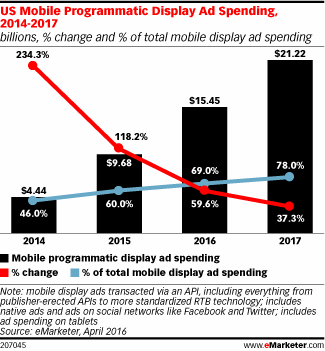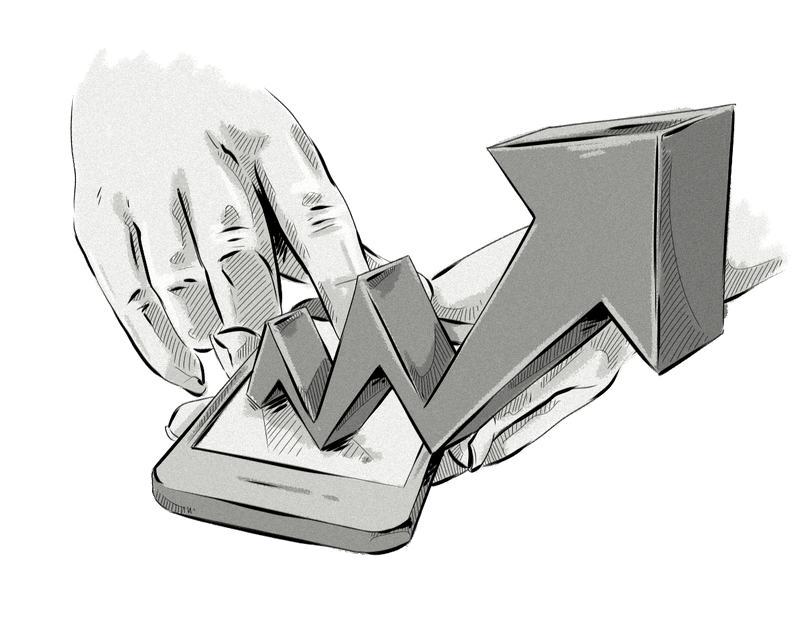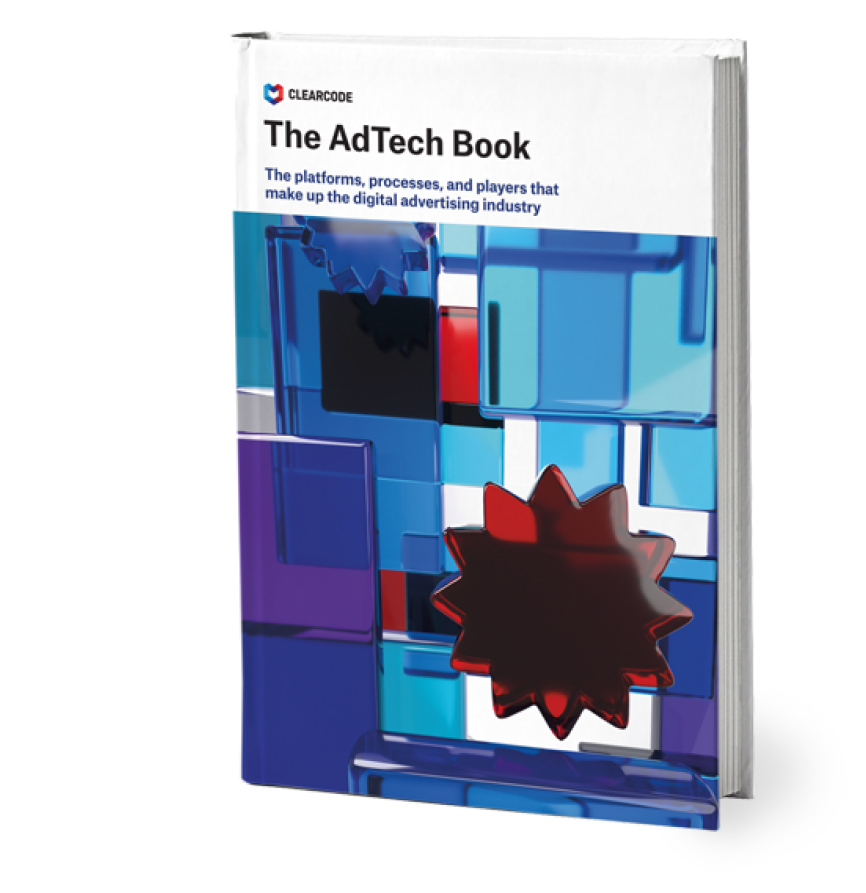Back in May 2016, we published our first Insider’s View: Ad Tech & MarTech Q&A where we interviewed our CEO, Maciej Zawadziński, and got his thoughts on a range of topics.
Since Maciej’s Q&A, we’ve conducted 10 interviews with folks from all walks of Ad Tech & MarTech life, including CEOs, members of the press, CMOs, and analysts.
One of the questions we asked them was which trends they thought we’ll see in the Ad Tech and MarTech industries in 2017.
Unsurprisingly, many of our Q&A interviewees mentioned similar trends.
Below are 5 trends that will shape the Ad Tech and MarTech landscapes in 2017 as mentioned by our Insider’s View: Ad Tech & MarTech Q&A interviewees.
5 Trends In Ad Tech & MarTech For 2017
1. Mergers and Acquisitions, Consolidation, and Tech Stacks
Mergers and acquisitions in Ad Tech and MarTech is nothing new, however, M&A activity was particularly lively in 2016.
Here’s a list of some of the most prominent M&As in 2016:
- Xaxis acquired Triad Retail Media
- Criteo acquired HookLogic
- Adobe acquired TubeMogul
- SalesForce acquired Krux
Many of our interviewees predict that M&As will continue in 2017.
“We saw Adobe buy TubeMogul last week, so you’ll see a lot more of that type of acquisition, with the major martech/cloud names buying scaled DSPs.” Ari Paparo, CEO at Beeswax, said in his Q&A back in November of last year.
Seth Ulinski, Senior Analyst at Technology Business Research Inc. (TBR), also sees more M&A on the horizon.
“Enterprise vendors will remain acquisitive, as it typically makes more sense for them to purchase a vendor’s tools than try to develop them internally given the speed and innovative nature of the market.” Seth said in his Q&A.
Clearcode’s own CEO, Maciej Zawadziński, also expects there to be more companies getting their cheque books out in 2017.
“Over the years there have been a number of mergers and acquisitions, but I predict that we’ll see even more M&As in the coming years.” Maciej stated in his Q&A.
Ultimately, mergers and acquisitions will bring about consolidation, which will pull the Ad Tech & MarTech worlds come closer together and give rise to a new era of integrated tech stacks.
2. AI And Machine Learning To Make Progress
It seems that everywhere you turn these days there is talk about the progress of artificial intelligence (AI) and machine learning – whether that be related to Google’s products or closer to home in the Ad Tech and MarTech spaces.
“Machine learning has reached a level of maturity where it’s being applied in more and more practical use cases in marketing. The promise is that software intelligence will help relieve some of the burden from us of managing the sheer scale and complexity of modern marketing.” Scott Brinker, founder of chiefmartec.com, said during his Q&A in September 2016.
Peter Messmer, Director of Growth at AddShoppers, already envisions some practical use cases of AI in marketing.
“One fairly basic example of this (AI) could be the potential to create a model of your email database that reacts like each real subscriber does, then sending them hundreds (or more) of variations of test emails to find the highest possible converting email. Or even the potential to send each a different highly personalized email.” Peter said in his Q&A back in June.
“It’s got a long ways to go, but it’s progressing quickly. Definitely a trend to watch in 2017.” Scott Brinker added.
3. Mobile Programmatic Ad Spend To Hit New Highs
“Every year for the last five years has been the year of mobile. We are definitely in the period of mobile and that’s not going anywhere anytime soon. In 2017, three fourths of the $32B programmatic spending is expected to run on mobile devices.” Robert Brill, founder of BrillMedia.co, said in his Q&A.
Figures from eMarketer state that mobile programmatic ad spend will surpass desktop for the first time.

Lindsay Rowntree, head of content for ExchangeWire, also envisions big things for mobile in the near future.
“We’re close to living in a world where every newspaper and out-of-home (OOH) ad is brought to life with a smartphone. What’s more, the sheer success of Pokemon Go proves that we’ll soon be looking through our phones to walk down the street and brands will be able to capitalise on that.” Lindsay said during her Q&A.
“Mobile is exciting, so much so that it’s almost scary and it’s still so new – we haven’t even experienced the start of it yet.” Lindsay added.
4. Server-Side Header Bidding Will Continue To Grow
2016 saw a number of companies move towards server-side header bidding as a way to reduce page latency caused by traditional browser-side (aka client-side) header bidding.
This year we’ll see a lot more companies adopt server-side header bidding with some of the bigger players leading the way.
Reports surfaced at the beginning of December last year that Amazon was planning on announcing their own server-side header bidding solution with similar news coming out at the same time stating that Purch was also pursuing server-to-server connections.
The year ahead will see more headlines like “So-and-so adopts server-side header bidding” appear in media publications. The advantages of server-side implementations of header bidding will bring about improvements in page latency, higher yields for publishers, and better ROI on advertising campaigns.
5. Privacy And Data Ownership
Over the past few years, the Ad Tech industry (and the MarTech industry to a certain extent) has seen various government organizations from both the U.S and Europe introduce a number of privacy laws and regulations.
In October 2016, we saw the US Federal Communications Commission (FCC) introduce a set of privacy regulations that require Internet service providers (ISP) to gain opt-in permission from users before they can sell customer data (e.g. location, web history, and app usage data) to media companies.
Earlier in 2016, the US Federal Trade Commission (FTC) took aim at the definition of personally identifiable information (PII) and stated that certain pieces of data (e.g. IP addresses and device IDs) were now considered to be personally identifiable. Similar moves were made by the European Union’s Article 29 Data Protection Working Party (Art. 29 WP) a few years back when they changed their definition of personal data to include IP addresses.
“…privacy and data practices globally will have huge impact on the ecosystem as we know it today. Platforms and publishers are already beginning to see the effects of this, and I think it will continue.” Alex Wheldon said in his Q&A.
If history is anything to go by, 2017 will see government organizations take a tougher stance on how companies, particularly Ad Tech and MarTech companies, collect, store, and utilize user data and information.
One key event on the horizon is the General Data Protection Regulation from the European Parliament and Council. Although it’s only meant to come into effect on May 25, 2018, it will still have an impact on Ad Tech and MarTech companies in 2017 as they prepare for the regulation to come into full force.
Data ownership, for both companies and consumers, is also another topic that will receive more attention in 2017.
David Brown, founder and Chief Exec. at Adavow, weighed in on the data ownership issue in his Q&A back in August last year.
“There are already a few organisations focused on shifting data ownership rules from companies (who collect and store customer information) back to consumers (who don’t get any real value from giving away their data). The effect of this is that companies will no longer be allowed to collect and store user information — even for their customers.” David said.
The final take-home message is this – regardless of where you stand in the Ad Tech & MarTech worlds, 2017 will be anything but dull.








